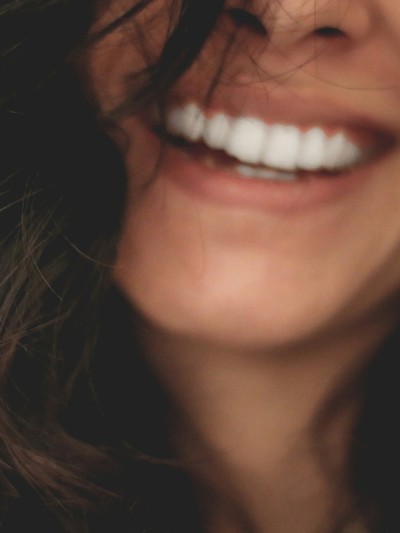

How To Look After Your Teeth In Midlife & Beyond
Watch Out For Changes
As we get older, our teeth and gums go through lots of changes, some that are inevitable and a natural part of ageing, and others that can be avoided. “Tooth wear and receding gums are the main issues as we age,” says Dr Mahsa Nejati, general and cosmetic dentist and founder of the Nejati Clinic and MAHSA oral products. When this occurs, it’s the enamel, or the protective outer layer of the tooth, that’s being worn away, which is problematic because it shields the rest of the tooth from cavities and damage. “As we get older our enamel can wear down and become thinner and this can expose the inner part of your tooth called dentine,” explains Dr Tom Crawford-Clarke, general and cosmetic dentist, owner and founder of LUCEO. “Dentine is not as hard wearing and therefore does not offer as much protection, making teeth more susceptible to developing future problems. As the enamel wears down and thins, it unfortunately becomes more susceptible to chipping and breaking.” In addition to being more structurally vulnerable, the dentine itself is darker than enamel, so when it’s exposed it causes teeth to look more yellow in colour. Common changes aside, the prevalence of more serious issues is higher the older you get. “Oral cancer is more common in people over 45 and is twice as common in men than in women,” adds Mahsa. As well as scheduling in more frequent check-ups, watch out for symptoms that can include persistent mouth ulcers, patches or lumps inside your mouth and difficulty swallowing.
Join The Dots
Research is increasingly pointing to evidence that shows our oral health and overall health are intrinsically linked, so staying on top of your dental health is vital if you want to maintain good health elsewhere. “We have known for many years the link between the oral biofilm and general health,” says Tom. “This is because the oral bacteria can enter your bloodstream and navigate their way to other organs. There has been a proven link between gum disease and heart disease for decades. More recent studies have shown a link between gum disease and diabetes, too. And early data is showing a link to Alzheimer’s and dementia, impact on menopause and even erectile dysfunction,” he adds. Aside from an increased risk in chronic diseases, poor oral health, including loss of teeth and a dry mouth, can lead to persistent discomfort in your everyday life, including excess inflammation that impacts the immune system and impaired digestion. “Tooth loss is the major reason that older people cannot chew as well and thus may not consume enough nutrients which can result in gastric problems,” says Mahsa.
Prevention Is Better Than Cure
Taking pre-emptive measures for good oral health is important and done as early as possible will ensure your teeth age well and without any issues. Top of the list is, naturally, regular brushing and using a good quality electric toothbrush is the professionals’ preferred option. Additionally, cleansing between your teeth with interdental brushes or flossing twice daily will help prevent bad bacteria from building up in your mouth and causing cavities. “You only clean 70% of your tooth by brushing alone,” says Tom. It might sound odd but ensuring your smile is as straight as possible is another important factor in encouraging healthy ageing of the teeth and gums and is something that should ideally be tackled as early as possible. “Straighter teeth are easier to clean and therefore this helps them to have longevity,” explains Tom. “A good bite position that is not unbalanced will also mean you’re not placing excessive pressure on areas where the tooth isn’t as strong; again this helps your teeth to last longer.”
Don’t Ignore Your Gums
According to the European Federation of Periodontology, eight out of ten people aged 35 and over suffer from some form of gum complaint, while a recent government survey said 28% of those aged 55 to 64 years had a gum disease diagnosis. To maintain healthy gums and prevent recession as much as possible, opt for a toothbrush with a pressure sensor. “You want to brush the gum line well but with only a gentle pressure,” says Tom. “Avoid using a manual toothbrush as you’ll almost certainly brush too hard.” If you’re predisposed to receding gums or notice a steady recession of your gum line, gum grafting is an option to thicken the gum and bring it back to the correct level. And when it comes to your cleaning routine, gone are the days when just a toothpaste will cut it. Make sure you have a handful of good, antibacterial and anti-inflammatory oral products in your dental kit to ensure teeth and gums stay healthy and strong and you’re not faced with embarrassing issues such as halitosis. Mahsa’s Rosemary & Thyme Activated Mouthwash manages to make gargling glamorous and helps prevent gingivitis and gum disease with regular use.
Understand Your Options
If you do start to experience thinning of the teeth and obvious signs of wear and tear, there are ways to mitigate the damage and strengthen your teeth. “A normal amount of tooth wear or enamel loss is anywhere between 0.02-0.05mm a year,” says Tom. “Excess acid consumption, habits like nail biting and grinding will cause more than this, sometimes a hundred times more.” One of the simplest ways to do this is to avoid harsh, abrasive toothpastes and use oral products containing a high concentration of fluoride, which remineralises your tooth enamel and can reverse early decay. According to Tom, look for toothpastes specifically designed to counteract tooth wear, such as Pronamel, or those with a fluoride concentration of at least 1,450ppm. To allow it to do its job, don’t rinse after brushing. If at-home solutions don’t help, there are sophisticated in-clinic option that can reinstate a more seamless, even tooth surface. “We go further by micro-layering the surface with an enamel-like porcelain-infused composite material that imitates enamel and creates a protective barrier on the worn teeth,” says Mahsa. If staining is your issue, seeing a hygienist who can polish your teeth at least every six months will help, as will avoiding staining food and drink like red wine and coffee as much as possible. If you can’t abstain, swill your mouth with water afterwards and book in for regular professional teeth whitening.
Visit @Mahsa_Nejatii; DrTomCrawfordClarke.com & LuceoDental.com
DISCLAIMER: We endeavour to always credit the correct original source of every image we use. If you think a credit may be incorrect, please contact us at info@sheerluxe.com.

